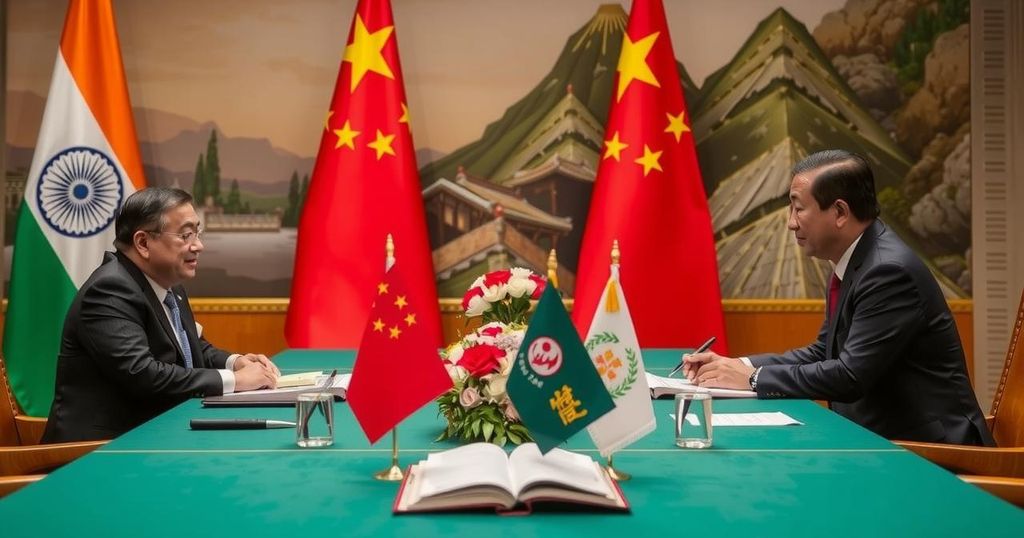India and China Forge New Consensus on Border Resolution Amidst Tensions
India and China have reached a consensus on six key points regarding their border disputes after a meeting between National Security Advisor Ajit Doval and Chinese Foreign Minister Wang Yi. Agreements include maintaining peace, enhancing cross-border tourism and trade, and continuing discussions for a mutually acceptable resolution to the boundary issues. Following a recent disengagement of troops, both sides are eager to rebuild trust and strengthen bilateral relations.
In a pivotal meeting aimed at addressing the longstanding border disputes, India and China reached a consensus on six key points as National Security Advisor Ajit Doval engaged with Chinese Foreign Minister Wang Yi. The two nations shared a commitment to sustaining peace and actively pursuing a mutually agreeable resolution to their boundary issues. Additionally, the discussions highlighted initiatives to enhance cross-border tourism, river cooperation, and to reinstate trade at the Nathu La border, alongside the pilgrimage to Mansarovar.
This meeting represented the first Special-Representative level dialogue since the border tensions escalated in recent years. Following a bilateral conversation between Prime Minister Narendra Modi and President Xi Jinping at the BRICS summit, this meeting signifies a critical step towards thawing relations that had been strained since the violent clashes in Ladakh’s Galwan Valley. The focus remained on enforcing stability in border regions and fostering a robust India-China relationship.
During their discussions, both representatives upheld the necessity of peace in the border areas to foster mutual growth and collaboration. They reinforced their commitment to working towards a balanced and acceptable solution to boundary negotiations, aligned with previously established political guidelines. Additionally, they agreed on streamlining border management and bolstering confidence-building measures to ensure sustainable tranquility moving forward.
Furthermore, India and China expressed intent to enhance cultural ties through strengthened cross-border exchanges and to facilitate pilgrimages from India to Tibet, reinstating trade activities at the Nathu La border. Plans for additional Special-Representative meetings in India are set for the following year, indicating a shared desire for continuous dialogue on these pressing issues.
Following their recent disengagement agreement in October, which resulted in troop withdrawals from contentious border areas, both nations are poised to build a foundation of trust. The forthcoming Special-Representative talks, marking a long-standing effort to address border concerns, serve as a beacon of hope for a peaceful resolution.
The border dispute between India and China has been a contentious issue, leading to military standoffs and diplomatic tensions over the years. This recent meeting comes on the heels of a significant disengagement agreement that allowed both nations to withdraw troops from areas of friction. Historical relations between these countries have been fraught, especially after violent encounters in Ladakh, which highlighted the need for renewed dialogue and cooperation. The discussions signal a concerted effort by both nations to stabilize their relationship and foster peace in the region.
The recent discussions between India and China mark a constructive approach towards resolving their border disputes. By agreeing on six vital points aimed at ensuring peace and cooperation, both countries are setting the stage for improved bilateral relations. The focus on cross-border tourism, trade, and the commitment to continuous dialogue underscores a mutual desire for stability, following years of tension. Future meetings promise to build on this momentum, potentially paving the way for a long-term resolution of their territorial conflicts.
Original Source: www.ndtv.com








Post Comment